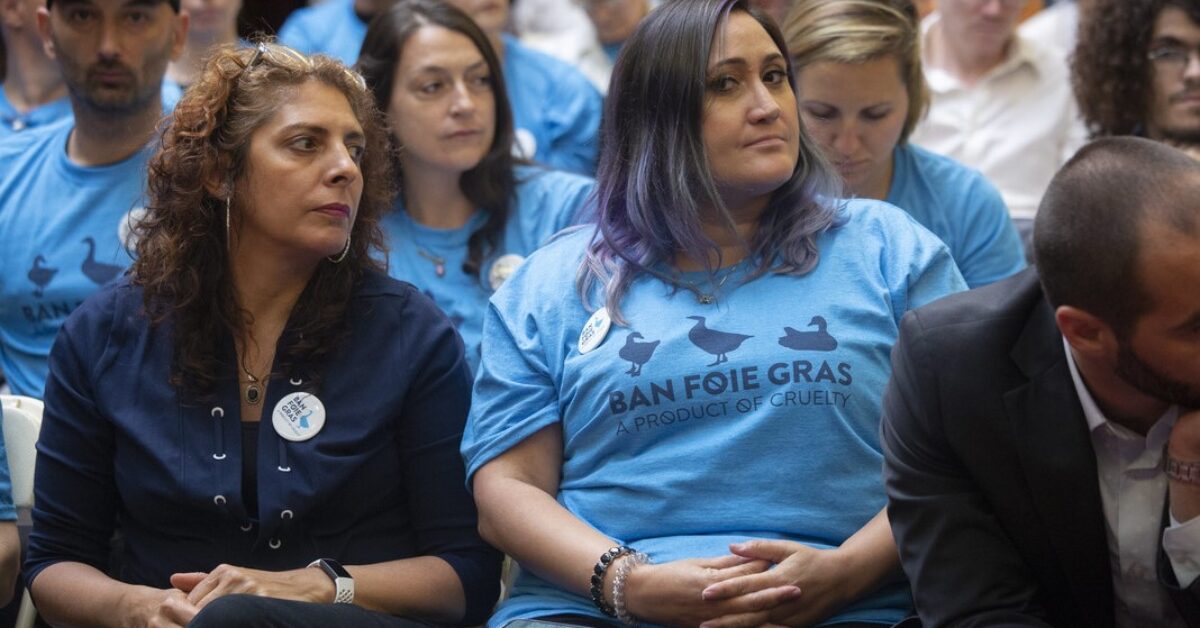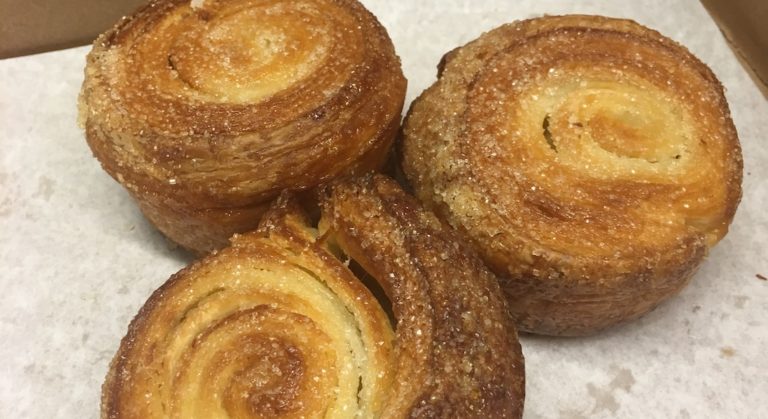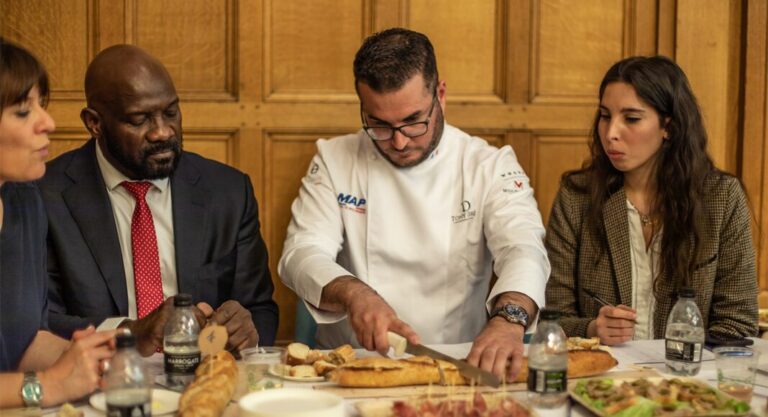Will we be able to continue to eat foie gras in New York? Members of the City’s municipal council listened for several hours on Tuesday, June 18, to the testimonies of supporters and opponents of the sale of foie gras, which is created through the force-feeding of geese and ducks. A local elected official, Carlina Rivera, introduced a bill earlier this year to ban the delicacy from New York City.
One hour before the hearing began, several dozen members of various animal rights groups waved graphic photos of the force-feeding process in front of New York City Hall. Hervé Breuil was one of them. This Frenchman, based in New York, is the former campaign director of the animal rights organization, L214. He came to testify to what he saw during clandestine visits to several foie gras farms in France: “I come to talk about the horrors I saw on these farms and the natural needs of ducks: access to water, to puddles of mud, the possibility of spreading their wings… They don’t have all this in these types of places.”
In the New York, there are two foie gras farms, Hudson Valley Foie Gras and La Belle Farm. Matt Igoe, the sales manager of the former, had concerns about the number of jobs that would be lost if the law is passed. “We are a small farm in northern New York. If our animals, which are raised in good conditions, are banned from sale in the New York City market, all these people will lose their jobs. It is very difficult to find jobs in our small town.” Igoe plans to invite members of the city council to visit his farm. He assures that in the past, after the people who wanted to ban foie gras in New York visited the farm, they immediately withdrew their support for the ban.
A few minutes before entering the hearing room, Helen Rosenthal, a city councillor, arrived to support the anti-foie gras activists. The atmosphere was joyful. According to Matthew Dominguez, of the Voters for Animal Rights association, 81% of New Yorkers would support the bill, introduced by Democrat Carlina Rivera. There were no significant moments of conflict between the two sides, although they were separated by a few feet before the hearing began. The tension rose once, when a woman accused Igoe of paying people to testify on his behalf. Miguel Ponce is one of the defenders of foie gras. He produces and eats it with pleasure: “I love meat but my two sons are vegetarians, that’s their problem. I never forced them to eat it. [The defenders of the bill], if they don’t want to eat foie gras, they should let others eat it,” he said indignantly.
A dozen proposed laws (including a ban on horses working in Central Park when it’s more than 90 degrees Fahrenheit) related to animal welfare were discussed that morning. In the hearing room, the public listened attentively to the many testimonies, reacting frequently. Hands moved in the air to applaud silently and thumbs turned down as a sign of disapproval. In the anti-foie gras camp, everyone testified about the cruelty of the process of force-feeding geese and ducks, also presenting alternatives. “Vegan foie gras, which is a mixture of vegetable proteins, has a texture and taste very similar to real foie gras,” noted Julie Cappiello, campaign director of World Animal Protection.
Among those testifying was a 19-year-old girl, whose parents have worked for many years at Hudson Valley Foie Gras, told elected officials that she was able to receive the education she wanted through her parents’ employment. The municipal councillors will take this testimony into account and analyze it like all the others. They will then decide whether or not to hold a vote on the ban on foie gras and when that would be. For the time being, the fate of this traditional French dish in New York is not clear. If it is banned from the city, like in California, it will be a blow for the industry on a national level because of New York’s significance as a market.






